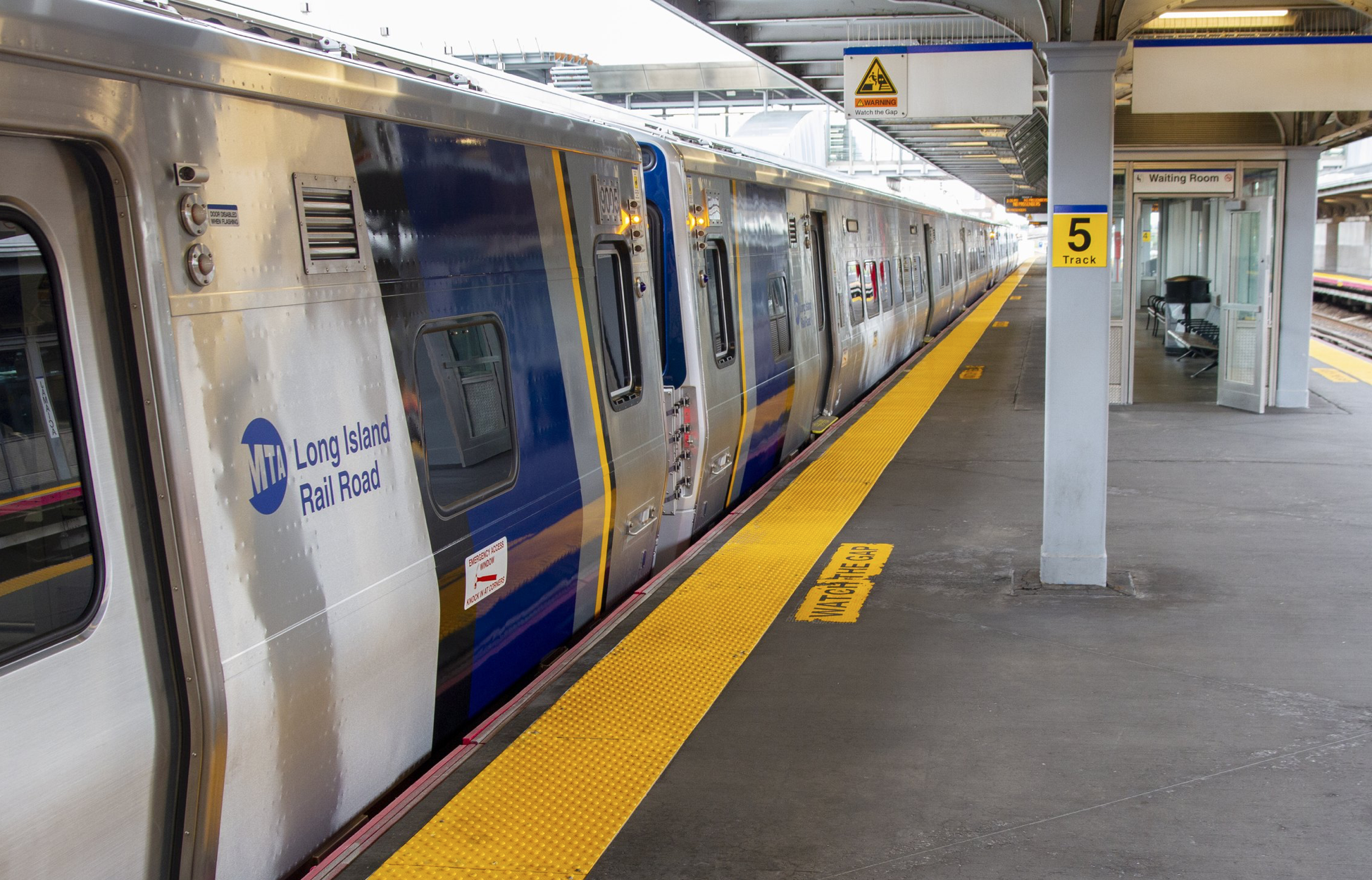Elected officials from Brooklyn and Queens and transit advocates are asking the MTA to let the good times roll for people using a discounted LIRR ticket.
The group calling itself the Fair Ride Coalition wants the MTA to make its discounted Atlantic Ticket a permanent fixture of the city's transit landscape. The Atlantic Ticket, which started as a pilot program in 2018 and was extended in 2019, allows Long Island Rail Road riders coming from Brooklyn and southeast Queens to buy one-way tickets to Atlantic Terminal for $5, or buy a $60 weekly pass that comes with a 7-day MetroCard attached as well. The trip can cost up to $10.75 for a one-way peak hours trip without the discount. And though the MTA's finances are topsy-turvy due to the coronavirus ridership drop, the coalition argues that the pandemic has demonstrated the need for a cheaper LIRR for Queens and Brooklyn commuters.
"A more equitable fare structure that utilizes the successful Atlantic Ticket model is a bold and needed response from the Authority," the coalition wrote in its letter. "Lower fares will provide relief to New Yorkers rebounding from the financial devastation of the pandemic, and they will also help the MTA to attract riders back to its system. Importantly for the Authority, fare reduction will generate new revenues as it incentivizes the use of the railroads, which will also help alleviate overcrowding on subways and buses."
And beyond the financial aspect of the discount ticket, proponents of the discount say that frontline workers could keep saving save hours every week if the discount is made permanent.
Locking in the discount "would be a game-changer for residents of Queens and Brooklyn, giving back 5-10 hours a week for people to spend with their families and in their communities," said City Council Member Daneek Miller. "In the immediate future, it would allow the essential workers at the frontlines of this crisis access to more reliable and faster transit options"
Since the program began in June 2018, 1.68 million one-way Atlantic Tickets have been purchased, and 100,806 weekly Atlantic Tickets have been sold. Out of 2.67 million total rides taken with the ticket, 1.77 million rides or 66 percent, have been taken between station pairs outside of Jamaica and Atlantic Terminal.
The program hasn't come without its critics though. Samuel Santaella wrote that the existing LIRR discounts like the City Ticket (a $4.50 fare good for intracity travel on weekends) and the Atlantic Ticket don't go far enough towards unlocking commuter rail for residents of Brooklyn and Queens, especially since the daily version of the Atlantic Ticket doesn't include a free bus or subway transfer. Instead, Santaella said that agency should institute Comptroller Scott Stringer's proposal for a $2.75 fare for intracity travel on the LIRR and Metro-North.
The Fair Ride Coalition also said that the MTA should study expanding an Atlantic Ticket-style program to Metro-North riders in the Bronx and Manhattan. That's a step too far for some advocates of the program, since the MTA has been hit hard enough by declining revenues that the agency has had to hold off on instituting fare discounts for intracity LIRR and Metro-North riders paid for by the Outer Borough Transit Fund.
"This is something we believe in strongly, but we don't think this is the best time to expand the program," said Lisa Daglian, the president of the Permanent Citizens Advisory Council to the MTA. "We support it becoming permanent, but an expansion is a question of resources and the railroads don't have them right now." Daglian added that the PCAC wants to see the ticket added to the MTA's e-Tix app so customers don't have to rely on ticket machines to get the discount.
A spokesperson for the MTA told Streetsblog the agency is trying to gauge how ridership is responding to the pandemic before making a commitment on extending the discount.
"We recognize the heroic work being performed by essential workers through this emergency and continue to provide safe and reliable service," said Meredith Daniels. "Our fare policy remains in effect, including discounted programs such as Atlantic Ticket. We are still navigating what our ridership will look like going forward and continue to study the numbers and financial impact before we consider any modifications."






